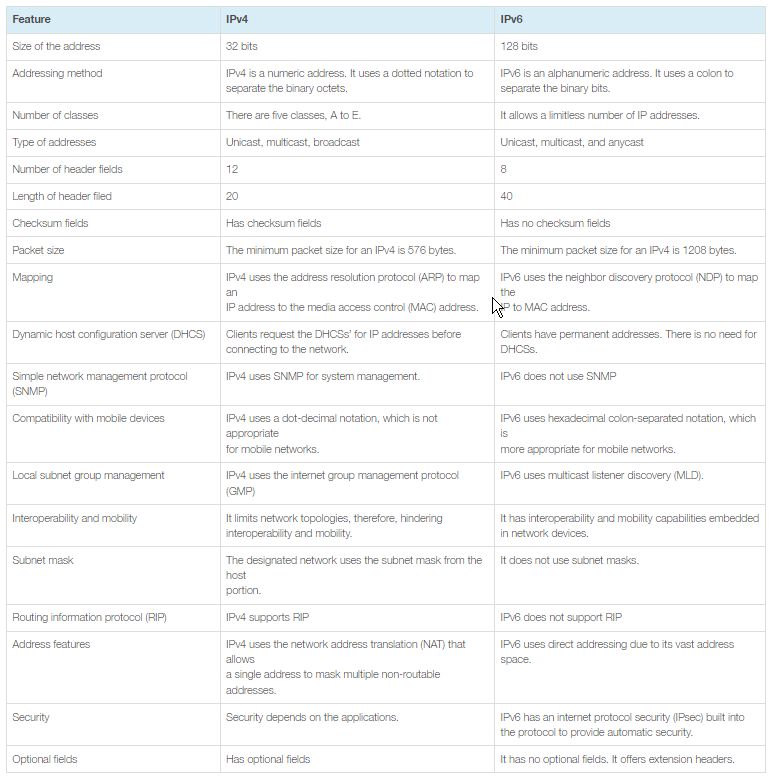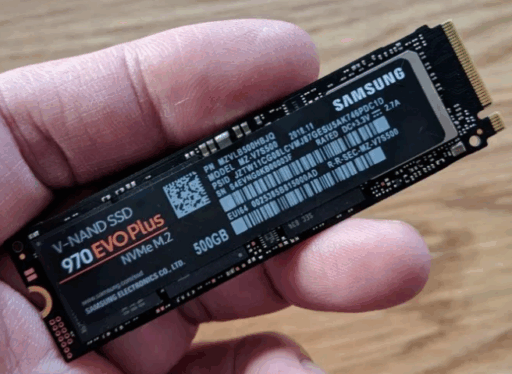
IPv4 addresses are the numbers that identify every device on the Internet. However, IPv4 addresses are limited to 32 bits, which means there are only 4.3 billion possible addresses. This number is not enough for the current and future number of devices connected to the Internet, especially with the growth of mobile devices and the Internet of Things. IoT describes the network of physical objects—“things”—that are embedded with sensors, software, and other technologies for the purpose of connecting and exchanging data with other devices and systems over the internet. These devices range from ordinary household objects to sophisticated industrial tools. With more than 7 billion connected IoT devices today, experts are expecting this number to grow to 22 billion by 2025.
Unfortunately, IPv4 addresses are exhausted, meaning that there are no more unallocated addresses available for new devices or services.
The exhaustion of IPv4 addresses has been a concern since the late 1980s, when the Internet started experiencing rapid growth. Several solutions have been developed and implemented to slow down the depletion of IPv4 addresses, such as:
- Classless Inter-Domain Routing (CIDR), which allows more efficient use of the address space by dividing it into variable-sized blocks.
- Network Address Translation (NAT), which allows multiple devices to share a single public IP address by using private IP addresses within a local network.
- IPv4 transfer market, which allows the buying and selling of unused or underused IPv4 addresses between organizations.
- Internet Protocol Version 6 (IPv6), which is the successor of IPv4 and provides a much larger address space of 128 bits, which can accommodate 340 undecillion (3.4×10^38) addresses.
These solutions are not enough to solve the problem completely, as they have some limitations and challenges.
For example, CIDR and NAT can cause some issues with routing and compatibility, IPv4 transfer market can increase the cost and complexity of obtaining addresses, and IPv6 adoption is still slow and uneven across the world.
IPv4 address exhaustion is a serious issue that affects the performance, security, and innovation of the Internet. It requires more awareness, cooperation, and action from all the stakeholders involved, such as governments, businesses, organizations, and users.
The transition to IPv6 is considered the long-term and ultimate solution to this problem, as it can provide enough addresses for the current and future needs of the Internet.
The number of IPv6 addresses is enough to give every device on the Internet a unique address, without the need for any address sharing or translation techniques that can cause performance and security issues.
However, IPv6 is not widely adopted yet. According to Google, only about 45% of the global users today access its services over IPv6, even though it’s been available for ten years. There are still some challenges and barriers to the transition from IPv4 to IPv6, such as compatibility, cost, awareness, and coordination.
The depletion of IPv4 addresses is a serious problem that affects the growth and innovation of the Internet. The only viable long-term and ultimate solution is the full implementation of IPv6, which can offer more benefits than just more addresses. IPv6 can also improve the speed, efficiency, security, and functionality of the Internet.

BROUGHT TO YOU BY PROLIMEHOST
We’ve been in the web hosting industry for over a decade, helping hundreds of clients succeed in what they do best and that’s running their business. We specialize in Virtual Private Servers (VPS) and dedicated servers, with data centers in Los Angeles, Denver & Singapore.
VPS SERVICES: LIGHTNING FAST SSD VIRTUAL SERVERS
Our Virtual Private Servers all feature high performance Xeon processors and SSD storage in a RAID10 configuration to optimize your server’s performance, which dramatically enhances visitor experiences on your site.
That speed is backed by unparalleled 24/7 support, featuring both outstanding response AND resolution times to maximize your uptime.
Now is the time to join the ProlimeHost virtual private server revolution.
DEDICATED SERVERS: BACKED BY A 99.9% SLA NETWORK UPTIME GUARANTEE
We only use enterprise-class hardware in our dedicated servers and offer a four (4) hour hardware replacement. Throw in IPMI for remote management, support for public and private networks, free operating system (OS) re-installs, and SATA, SAS & SSD (including NVMe) storage. Call 1-877-477-9454 or contact us. For everything from gaming, AMD and GPU servers to cheap dedicated servers, we’re here to help.
ASIA OPTIMIZED SERVERS: IMPROVING CONNECTION SPEED AND QUALITY
Procuring an Asia optimized server improves the connection speed and quality between the server and the users in Asia or China. This can reduce latency, packet loss, jitter, and bandwidth issues that can affect the performance and reliability of the server and the applications hosted on it. For more information, please call 1-877-477-9454 or contact us.





